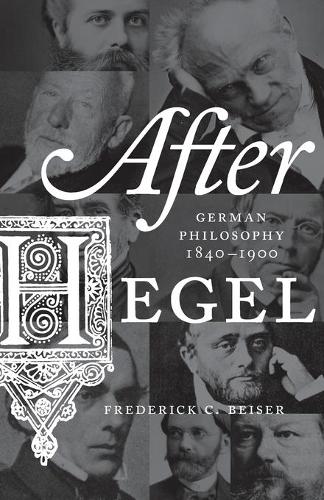
After Hegel: German Philosophy, 18401900
(Paperback)
Publishing Details
After Hegel: German Philosophy, 18401900
By (Author) Frederick C. Beiser
Princeton University Press
Princeton University Press
21st November 2016
United States
Classifications
Tertiary Education
Non Fiction
193
Physical Properties
Paperback
248
Width 140mm, Height 216mm
312g
Description
Histories of German philosophy in the nineteenth century typically focus on its first half--when Hegel, idealism, and Romanticism dominated. By contrast, the remainder of the century, after Hegel's death, has been relatively neglected because it has been seen as a period of stagnation and decline. But Frederick Beiser argues that the second half of
Reviews
"This is an invaluable exercise in broadening one's historical and cultural understanding; one should think twice about the traditional view that 1840-1900 is a period of only transforming Hegelianism into Marxism and Existentialism. Ironically, then, Beiser's lesson about the history of 19th century postHegelian Philosophy in Germany is a Hegelian one. The traditional narrative is onesided, and one ought to be thankful for the clear and engaging way Beiser reveals this."--Paul Giladi, Marx and Philosophy "Beiser is arguably the most prolific and informative historian working on nineteenth-century German philosophy in the English language today... [His] work is to be commended for its clarity of writing, historical accuracy and scholarly research."--Borna Radnik, Radical Philosophy
Author Bio
Frederick C. Beiser is professor of philosophy at Syracuse University. He is the author of many books, including The Fate of Reason, German Idealism, Hegel, and The German Historicist Tradition.
